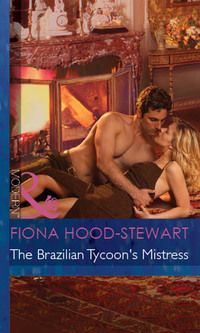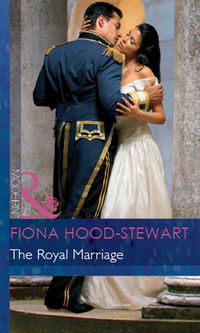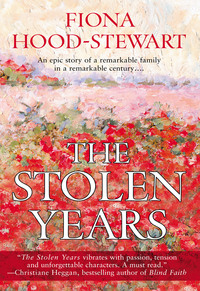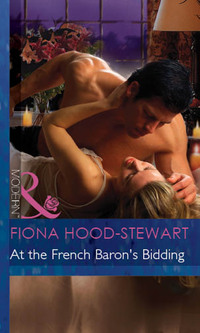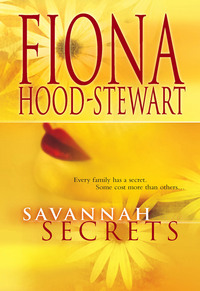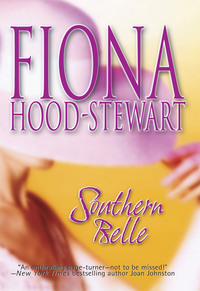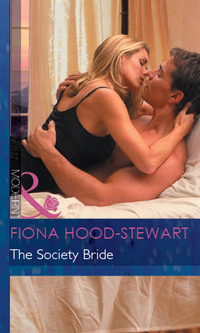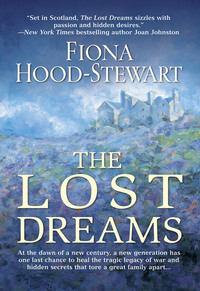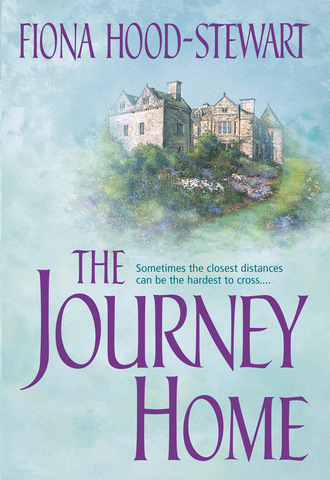
Полная версия
The Journey Home

India moved to the window and looked through the frosty panes at the fresh snow covering the lawn and at the Dunbar oak, standing regal and alone.
William, the first Dunbar to settle here, had planted the tree in 1280, and had made the pledge that had been handed down from generation to generation: While this oak tree stands, a Dunbar will always walk the land. India drew her eyes away sadly. If the property were sold, William’s vow would be broken.
As she was about to leave, India caught sight of the small writing desk her mother had used for her private correspondence. An uncapped fountain pen lay on a sheet of half-written writing paper. She crossed the room and picked up what appeared to be an unfinished letter, realizing with a start that it was addressed to her.
My dearest India,
I am sending this off to you today, for I am most distressed. I am suffering from a dreadful dilemma and need to speak to you urgently. Please come to Dunbar as quickly as you can. I’d call, but I’m afraid I will be overheard. You need to be aware—
The letter was cut short, as though Lady Elspeth had been interrupted. India frowned, glancing at the date. The letter had been written on the day of her mother’s death.
“MIRA means star. This is a writer definitely shining.”
—New York Times Bestselling Author
Heather Graham
The Journey Home
Fiona Hood-Stewart

To
my darling boys,
Sergio and Diego,
and
in loving memory of Mummy,
my Lady Elspeth.
For all she was, and always will be to us all.
The Tears of Scotland
Mourn, hapless Caledonia, mourn
Thy banished peace, thy laurels torn.
Thy sons, for valor long renowned,
Lie slaughtered on their native ground;
Thy hospitable roofs no more
Invite the stranger to the door;
In smoky ruins sunk they lie,
The monuments of cruelty.
The wretched owner sees, afar,
His all become the prey of war;
Bethinks him of his babes and wife,
Then smites his breast, and curses life.
Thy swains are famished on the rocks,
Where once they fed their wanton flocks:
Thy ravished virgins shriek in vain;
Thy infants perish on the plain.
What boots it, then, in every clime,
Through the wide spreading waste of time,
Thy martial glory, crowned with praise,
Still shone with undiminished blaze?
Thy towering spirit now is broke,
Thy neck is bended to the yoke:
What foreign arms could never quell,
By civil rage and rancor fell.
The rural pipe and merry lay
No more shall cheer the happy day:
No social scenes of gay delight
Beguile the dreary winter night:
No strains, but those of sorrow, flow,
And nought be heard but sounds of woe,
While the pale phantoms of the slain
Glide nightly o’er the silent plain.
O baneful cause, oh, fatal morn,
Accursed to ages yet unborn.
The sons against their fathers stood;
The parent shed his children’s blood.
Yet, when the rage of battle ceased,
The victor’s soul was not appeased:
The naked and forlorn must feel
Devouring flames, and murdering steel.
The pious mother doomed to death,
Forsaken, wanders o’er the heath,
The bleak wind whistles round her head,
Her helpless orphans cry for bread,
Bereft of shelter, food, and friend,
She views the shades of night descend,
And, stretched beneath the inclement skies,
Weeps o’er her tender babes, and dies.
Whilst the warm blood bedews my veins,
And unimpaired remembrance reigns,
Resentment of my country’s fate
Within my filial breast shall beat;
And, spite of her insulting foe,
My sympathizing verse shall flow,
“Mourn, hapless Caledonia, mourn
Thy banished peace, thy laurels torn.”
—Tobias Smollett, 1746
This poem was written by the poet and satirist Tobias Smollett shortly after the Battle of Culloden, and expresses Scottish rage at the treatment of the vanquished Jacobites.
ACKNOWLEDGMENTS
Many thanks to all those wonderful friends who have been there all along the way. Emilio Lopez, for lending me my first laptop, David d’Albis, for his patience and long suffering teaching me about computers, and Simon di Rollo, for his Scottish legal expertise. Special thanks to Heather Graham Pozzessere, Sally Fairchild and Joan Johnston, whose encouragement and faith in me have been so precious. Thanks also to the lovely ladies at MIRA: Dianne Moggy, Amy Moore-Benson and Martha Keenan. Last but not least, my deepest thanks to Jean Marie Grimsley, for her tireless assistance, and Sondra Schneider for helping me see more clearly.
Contents
Prologue
Chapter 1
Chapter 2
Chapter 3
Chapter 4
Chapter 5
Chapter 6
Chapter 7
Chapter 8
Chapter 9
Chapter 10
Chapter 11
Chapter 12
Chapter 13
Chapter 14
Chapter 15
Chapter 16
Chapter 17
Chapter 18
Chapter 19
Chapter 20
Prologue
The Lowlands, Scotland
1746
Rob Dunbar held his young bride, Mhairie, close. They huddled by the smoking peat fire, hungry and exhausted after their harrowing journey from the Highlands. The small band consisting of Rob, his gillie, Hamish, and Mhairie and her mother had made their way south, disguised as drovers driving their cattle to market in Falkirk. They had avoided the Redcoats, and the only stops taken were in smoky bothies of other loyal Jacobite supporters, or outside, in the clachans, where Rob had tenderly laid his plaid on the heather and bracken for them to lie upon.
He gazed longingly at his lovely young bride, his heart full. Words seemed pointless now that so little time remained, and he raged at destiny for tearing them so cruelly apart when all they wanted was each other. How fortunate that they had married despite their parents’ opposition. Not that they had disapproved the match, but as Struan, her father, had remarked in his dour Highland manner, “What use is there te’ take a wife ye’ll nae have by yer side nor in yer bed, ma’ boy? Better fer both of ye te’ wait till all this warring is behind us.”
A sad smile touched Rob’s lips and he straightened the dirk stuck firmly in the heavy leather belt that secured his twelve-foot kilt and plaid. Wistfully he realized that those nights of love among the heather would be their only comfort in the dark days of separation to come.
He gazed at the fire and thought of the Colonies. They seemed so very far. Rob sighed and covered Mhairie tenderly with her plaid, wondering if she would ever return. Enemy troops were everywhere. Edinburgh Castle was in the hands of the Hanoverians, and many Lowlanders had turned traitor and joined German Geordie’s men. Even if Bonnie Prince Charlie won the battle that was brewing, hope of Mhairie’s return was faint. And if he lost, their fate would be a dismal one. The Prince’s followers would be vanquished men, stripped of their weapons, their estates forfeited to the English crown, and the whole uprising would have been for naught. Things had changed considerably since the uprising in 1715. Now Highland lairds were finding it hard to rally their men, and only the crois tara, the cross made of two charred sticks covered in blood which demanded on pain of death that a man follow his chieftain into battle, succeeded in persuading them.
Rob stroked his beloved Mhairie’s locks. He’d faced the agonizing choice of going home to his lands in the south or rejoining the Prince. But even as he hugged his wife, he knew a man could not shirk his duties. His loyalty lay with his sovereign. Whatever the outcome, he must head back North and fight the last fight.
Still, the thought of Mhairie’s departure in a few hours was devastating. He saw her shiver and held her closer. “Are ye cold, ma’ beloved?” he asked tenderly.
“’Tis not the cold in ma’ body but the chill in ma’ heart that ails me, Rob,” she whispered, shuddering.
He placed more peat on the fire before seating himself down beside her once more and cradling her head gently in his lap. He caressed the soft auburn curls that flowed, long and thick, about her heart-shaped face, wondering when, if ever, he would see them again.
Jamie, his dear and faithful friend, entered the low-beamed room, silently handing him a tumbler of pungent whiskey. They sat, Rob embracing Mhairie, Jamie brooding before the fire, the hours passing all too quickly. Rob’s heart ached as dawn drew nigh and separation ever closer.
Soon they had mounted and were on their way to Leith where the ship lay at anchor, the seashore and brine sharp reminders of what little time remained. Rob whispered in Gaelic to his gillie, sending him ahead through the thick damp haar with the prearranged signals.
They stood, a silent group of ravished souls, listening with heavy hearts as the waves lapped the hull of the tiny craft, coming silently across the water to take them to the vessel, her sails rigged and ready to sail.
“That must be Captain MacPherson himsel”’ Jamie whispered. “I’ll gae’ ahead and have a wee word wi’ him.” He disappeared into the early-dawn mist, leaving the young couple a few precious moments for their last farewell.
“Och, ma’ Mhairie. Never forget how deeply I love ye.”
“Nor ye, ma’ beloved,” she whispered, then gazed up at him, eyes pleading. “Come wi’ us, Robby, there is still time fer ye te’ come awa’ wi’ us. Dinna’ return te’ that godforsaken lot. Have ye not seen yersel’ that ’tis a fruitless venture?” She grabbed his face between her hands, supplicating.
“Ye ken that a’ canna’ gae wi’ ye, Mhairie. Ma’ duty lies wi’ the Prince. A’ canna’ let him doon. A’ wouldna’ be able te’ face ma’ ain sel’ if a’ did.”
She sighed, resigned, knowing full well he would return, just as her father and brothers had done.
“I have something te’ tell ye afore a’ gae awa’, Robby.”
“Speak te’ me, ma’ Mhairie, open yer heart while there is still time,” he begged, holding her close, his heart ready to break.
Tears filled her eyes and she clung to him, burying her head into the front of his vest. “A’m wi’ child, Rob. A’m carrying yer bairn.”
Wonder and joy overwhelmed him and he drew back, gazing down at her in awe, his hand moving to her belly, happiness piercing his misery like a shaft of bright light. But this was quickly replaced by the realization of his double loss.
“Och, ma’ darling, ma’ very ain Mhairie. When all this is fore’ by and better days come, ye’ll return to me and take up yer place as ma’ lady, and our bairn as ma’ rightful heir. But Mhairie—” His voice took on a sudden urgency as he glanced through the rising mist at the tiny boat reaching the shore and saw Captain MacPherson alight. With a sigh he faced bleak reality and opened his sporran, taking out a folded letter. “If a’ canna’ reach ye…If when ye return a’ should be in hiding, or worse. Ye must gae te’ Jamie and read what’s in this letter. A’ve told him what te’ do, and ye can trust him as ye would yer ain brother. And, ma’ beloved wife, tell our bairn—” The words caught in his throat. “Tell the bairn how close a’ hold ye both within ma’ heart. Keep the marriage papers and this letter safe and close te’ ye. They are the proof that ma’ son is ma’ rightful heir.” He handed her the letter carefully.
“Yer son?” She took it, slipping it silently into her bosom, then gazed up at him, a tremulous smile on her tearstained face.
“Aye, ye’ll see. ’Twill be a boy, as old Granny Bissett predicted our first born would be. And a fine one at that.” He held her close, his lips lingering on hers, his hand caressing her belly as he etched her in his heart forever.
Then it was time. He kissed her, bidding his love a last long farewell, tears welling in his eyes as she climbed weeping into the small rowing boat that slipped silently away from the shore, the captain anxious to set sail before the day broke.
Rob gazed out to sea, anger and rage battling as his eyes locked with hers for as far as they could reach. As the ship set sail, he watched the vessel head into the wind, carrying aboard his heart and soul, following her trajectory to the open sea, until she was nothing but a dot bobbing on the frothy swell on the horizon.
“’Tis time te’ gang awa’, Rob.” It was only then he realized Jamie was standing next to him, silently sharing his grief. He cast one last look at the choppy gray waters, his soul desolate as he turned on his heel, kilt swinging in the wind, and walked with Jamie to where the horses neighed restlessly, their nostrils flaring. Hamish handed him the bridle.
“Awa’ wi’ ye, Rob, afore German Geordie’s lads awake. ’Tis a lazy lot they are but, nevertheless, ’tis wiser to be on the safe side.”
“Aye, ’twould be foolish te’ die at the end of a rope instead of meeting ma’ maker at the point of a sword,” he answered, hoisting himself into the saddle.
“Och, I’ve nae fear fer ye, Rob. Ye’ll be back anon. Yer time’s not sae nigh as ye think. Are ye sure of what yer doing?” Jamie asked doubtfully.
Rob donned his blue bonnet, the eagle feather placed at a cocky angle, and straightened his shoulders proudly. “As sure as any man can be when his duty and his sovereign are calling,” he replied with a smile.
“Then sae be it. God speed te’ ye both.”
On Tuesday the fifteenth of April, they crossed the Spey River and headed toward Culloden where Murray had set up his camp. Rob arrived with a sinking heart, for all he’d seen for the last few miles were exhausted Highlanders lying strewn by the wayside, their eyes hollow with hunger and despair.
As he stood at the entrance of Murray’s quarters, the war pipes ringing in his ears, and saw the drawn faces of the earl and his men seated glum around the table, his heart sank.
He stopped before entering, filled with sudden foreboding, and gazed up at the heavy clouds of defeat bearing down upon them.
Then, with a heavy heart, he stepped inside and took his seat, the bleak countenances around the table telling their own tragic tales. Each man knew what destiny lay before him. Savage anguish pierced Rob’s heart as the harrowing truth sank in and the hope he’d harbored of one day being reunited with his beloved wife and child withered.
A never-ending death knell would ring throughout the Highlands. Blood would pour as never before in all of Highland history, and Scotland, his beloved homeland, would be changed forever.
1
Midlothian, Scotland
1999
By the time he’d missed his third pheasant, Jack Buchanan was in a foul mood. It did not improve when, instead of falling to the ground with a satisfying thud, the last bird fluttered into the gray Scottish sky, unscathed.
He lowered the shotgun, irritated. Pheasants did not fly away. They fell obediently, just as junior executives and the other members of his entourage jumped into action when they were supposed to.
He entered the glen briskly, realizing he was having a bad day. He knew to expect it, for this particular day was always bad. Each year he thought he’d get the better of the pain that still rose to the surface, as boldly now as it had then, and every year it got the better of him. He cocked the gun in preparation, willing his mind to concentrate fully on the task at hand. The next bird would not escape him.
He didn’t have long to wait before catching sight of his prey, and he aimed carefully before slowly squeezing the trigger.
A split second later he stood frozen to the spot, his gut clenched, cold sweat breaking out under the heavy shooting jacket. He’d just missed a figure who’d walked straight into his line of fire.
Missed, by an inch of fate.
Thank God for the reactions he’d learned years ago that enabled him to deviate the shot, sending it ripping into a tree trunk a few degrees to the right.
“Are you okay?” he shouted anxiously, trying to make out who it was. There was a moment’s silence followed by the echo of his own voice. Horrified, he slung the shotgun through his arm, the dogs following close to heel. Bracken crackled noisily under his boots as he strode quickly toward a tall slender woman standing motionless among the trees, her ashen face surrounded by long chestnut hair.
“Are you all right?” he asked, eyeing her anxiously. Slowly tension gave vent to annoyance as he realized she was unhurt. “Don’t you know it’s not safe to walk in the woods in the middle of the shooting season?” he asked accusingly.
“Hey! Wait just one minute. You nearly killed me,” she exclaimed, suddenly coming to life with a shudder. “Plus, if anyone has no business being here it’s you. This is private land.”
“I’m well aware of that, but I have the owner’s permission to shoot every darn grouse or pheasant that happens to cross my path,” he answered sarcastically, irked by her sudden self-assurance. “I’m sorry I scared you, but you’re to blame for this incident, you know. You should keep your eyes on the ground, not up in the clouds, and be aware of where you’re walking. Sit!” he snapped curtly, for the pointers were still scuffling in the undergrowth, trying to pick up the scent of the bird their master had missed.
“What nerve!” she exclaimed. “This land belongs to the Dunbar estate, and you’re trespassing.” She glared at him, steadying herself against the tree as she spoke. Jack looked at her properly now, suddenly struck by the strange color of her eyes, a grayish-green that reminded him of the North Sea on a windy summer’s day. They also held a very determined look, and he was in no mood to argue.
“See that tree over there?” He pointed to his left. “That is where this property, namely Dalkirk—” he began patiently.
“Rot and rubbish. You’re on my land, and if you don’t leave immediately, I’ll call the authorities,” she said, cutting him short.
“And just how do you plan to do that?” he demanded, his tone as challenging as hers.
“None of your business. If you don’t know how to use a gun properly, you shouldn’t be carrying one. You’re careless.”
He bristled. No one called Jack Buchanan careless. “Look, miss. I’m a houseguest of Sir Peter and Lady Kinnaird. As I’ve already told you, I have their permission to shoot on their property.”
She straightened, drawing her tall, slim figure to its full height, and cast him a withering look.
“Maybe in America being a houseguest gives you the right to invade other people’s property, but let me assure you that in Scotland it doesn’t. Now, I’d like to get past, please.” She took a step forward, then halted. “By the way, for future reference, that fence over there is the boundary between the two estates.”
Jack’s eyes followed her gloved finger over the dogs’ heads to a dilapidated fence, barely visible among the foliage and bracken.
Seeing it only made him more exasperated. He bowed in mock surrender as she strode past him, her head held high, and watched as she started down the incline, her shoulders ramrod straight in an old green jacket worn over a pair of faded jeans.
Feisty, he remarked to himself with a spark of grim amusement, then whistled to the dogs. The incident had unsettled him. He knew he was at fault. Not entirely perhaps, but he should have been paying more attention instead of brooding over the past, as he had done on this day each November for the last twelve years.
He was about to leave when something on the ground caught his eye. He stooped. It was a solitary diamond pendant glistening on the bed of dead leaves and broken twigs. Scooping it up, he called after the woman as she reached the clearing.
“Hold it, I think you dropped something.”
He watched her stop, sway for an instant as though trying to maintain her balance, then crumple silently to the ground, like a limp marionette. Dropping the pendant into the depths of his pocket, he raced down the incline to where she lay, prostrate on the dank earth.
Habit made him prop the gun against a tree trunk, sheer discipline keeping him from allowing emotion to cloud his mind. He banished all feelings of remorse and self-recrimination to the nether regions of his brain, and assessed the situation.
The raw November afternoon was fading fast, the sky heavy with clouds, and a chill in the air announced snow. Gently lifting her limp body, he gazed at her lifeless face. All at once, past images sprung before his eyes, a shaft of uncontrollable anguish tearing through him like a bullet, ripping his heart and piercing his gut as another face, a face so beloved and yearned after, replaced the one of the woman lying still and pale in his arms.
That this should have happened today of all days was the cruelest twist of fate. For a brief moment pain slashed into him, as rampant now as it had been then.
He forced himself to breathe deeply before heaving the woman carefully into a sitting position against his chest, her head propped against his shoulder. He sent up a silent prayer when she moved ever so slightly. Thank God she was going to be okay. When she finally stirred, he caught the fleeting whiff of her perfume. It lingered in the sea breeze that blew inland from the Firth of Forth and could still be felt, even here, in the heart of Midlothian. Her eyes twitched and he leaned closer, trying to catch the gist of her whispered words as she drifted back to consciousness. Then he set himself to the task of seriously reviving her.
India Moncrieff came to with a splutter. Something strong and pungent was burning in her throat. She struggled to sit up farther, but was restrained by a powerful hold.
“Drink some more,” a firm, masculine voice ordered.
Before she could answer, more liquid was tilted down her throat. Finally she found her voice.
“Please stop,” she begged, choking, her disjointed thoughts slowly taking shape. All at once she remembered. She’d been shot at. She hadn’t been hit, but the shock and fear of the moment must have caused her to faint. She felt suddenly ridiculous. She’d never fainted in her life. Then she realized, to her dismay, that the arm behind her head must belong to the obnoxious American, the one responsible for this whole mess.
“Just do as you’re told and stop arguing,” the deep voice continued. “The alcohol will get your blood moving. I’m going to move you over there.” Before she could protest, India was scooped up by a pair of strong arms, lifted as though she were a featherweight and deposited gently on a large tree stump.
“Where do you live?” he demanded, his hands still securing her arms in a firm grip.
“It’s really none of your business,” she muttered, wishing he would shut up. Perhaps then her head would stop spinning.
“You’ve made it my business. Whether I like it or not, you’re my responsibility.” He loosened his grip and stood up.
“Responsibility? I’d hardly call leveling rifles at people responsible. I’ll be fine on my own, thank you very much.” She passed a hand over her eyes and sat up straighter. Then, pulling herself together with an effort, she eyed the stranger, taking in the thick dark eyebrows that loomed ominously over a pair of piercing blue eyes. Eyes that held concern and, to her irritation, a touch of amusement.





